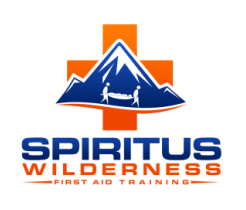Resources and Articles in Wilderness and Austere Medicine
The Wilderness Medical Society (WMS) has produced a series of Practice Guidelines covering many common wilderness emergencies. Take a look at a brief synopsis of the articles at http://www.wms.org/magazine/1191/Practice_Guidelines
NEW - Practice Guidelines
Practice Guidelines
| avalanchepreventionmanagement.pdf |
| drowningpreventiontreatment.pdf |
| pitviperpreventiontreatment.pdf |
| altitudeillness2014.pdf |
| spinalimmobilization.pdf |
| acutepainmanagement.pdf |
| woundmanagement.pdf |
| lightninginjuries.pdf |
| heatrelatedillness.pdf |
| frostbite.pdf |
| eyeinjuries.pdf |
| accidentalhypothermia.pdf |
| exercise-associatedhyponatremia.pdf |
The Wheelbarrow Carry
Eight Steps to SURVIVAL
1. Prepare - Avoid trouble and stay out of a survival situation
a. Research and outfit accordingly
b. Have a trip plan
c. Buddy system
2. Recognition - Use good judgement
a. Before it is a survival situation
b. When the stuff hits the fan
c. Review every time the situation changes
3. Inventory - Stop and think
a. People and resources
b. What do you have working for you
c. What is working against you
4. Shelter - It's more efficient to conserve energy than to create it
a. Clothing first line of defence (loose, layers, and avoid cotton)
b. Protect from water and wind
c. Anything to create dead air space (insulation)
5. Signal - Stay put; bring help to you
a. Stands out from the environment and sends the right message
b. Threes (fires, whistle blasts, gunshots, etc.)
c. Don't count on electronics - whistle, fire, mirror
6. Water - Stay hydrated, stay healthy
a. Boil if possible
b. Three-four litters daily
c. Critical after 24hrs
7. Food - Conserve energy
a. Ensure you are getting more calories than you are expending
b. Important after 48hrs, but can go weeks without (not advised)
c. Seldom a real issue, but if it is, think small (bugs, insects, berries, nuts, grasses, etc.)
8. Play - The importance of Positive Mental Attitude
a. Keep busy
b. Anything to improve your situation
c. Mental play (prayer, loved ones, songs, etc.) and the will to live
Adapted from Todd Miner - Cornell Outdoor Education
a. Research and outfit accordingly
b. Have a trip plan
c. Buddy system
2. Recognition - Use good judgement
a. Before it is a survival situation
b. When the stuff hits the fan
c. Review every time the situation changes
3. Inventory - Stop and think
a. People and resources
b. What do you have working for you
c. What is working against you
4. Shelter - It's more efficient to conserve energy than to create it
a. Clothing first line of defence (loose, layers, and avoid cotton)
b. Protect from water and wind
c. Anything to create dead air space (insulation)
5. Signal - Stay put; bring help to you
a. Stands out from the environment and sends the right message
b. Threes (fires, whistle blasts, gunshots, etc.)
c. Don't count on electronics - whistle, fire, mirror
6. Water - Stay hydrated, stay healthy
a. Boil if possible
b. Three-four litters daily
c. Critical after 24hrs
7. Food - Conserve energy
a. Ensure you are getting more calories than you are expending
b. Important after 48hrs, but can go weeks without (not advised)
c. Seldom a real issue, but if it is, think small (bugs, insects, berries, nuts, grasses, etc.)
8. Play - The importance of Positive Mental Attitude
a. Keep busy
b. Anything to improve your situation
c. Mental play (prayer, loved ones, songs, etc.) and the will to live
Adapted from Todd Miner - Cornell Outdoor Education
